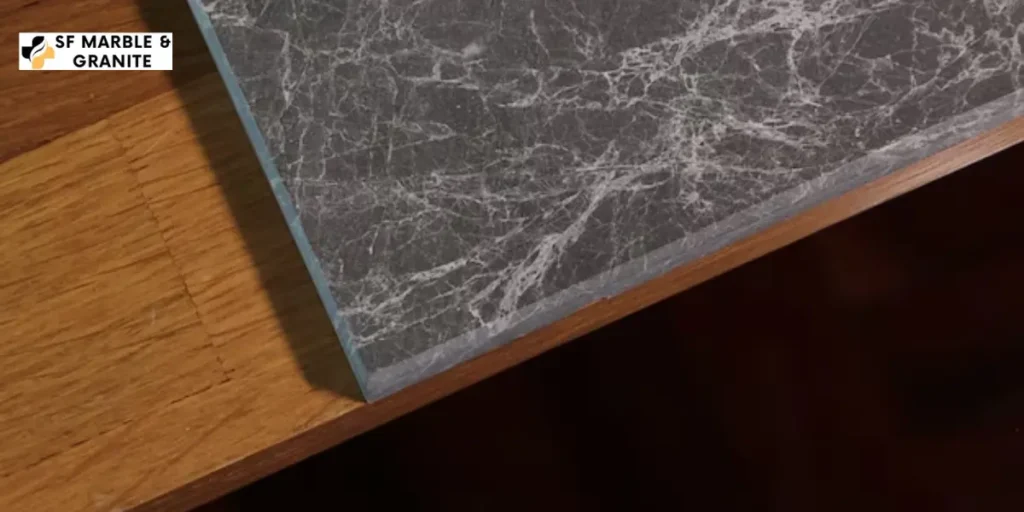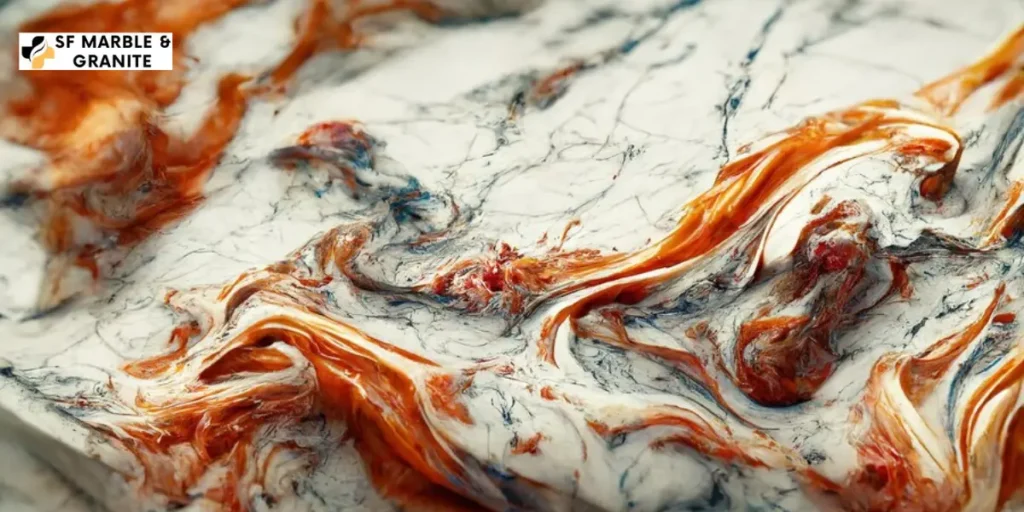Welcome to our comprehensive guide on what is cultured marble? In this post, we’ll delve into the world of cultured marble, exploring its definition, manufacturing process, uses, and benefits. Whether you’re a homeowner looking for a durable and elegant countertop option or a contractor seeking versatile material for commercial projects, this guide will provide you with all the essential information you need to know about cultured marble.
At SF Marble And Granite Inc, we take pride in offering high-quality cultured marble products that are not only aesthetically pleasing but also durable and sustainable. With our expertise in the industry, we strive to provide our customers with the best solutions for their projects. Whether you’re looking for custom-designed countertops, sinks, or shower walls, our team is dedicated to delivering exceptional results that exceed your expectations. Explore our range of cultured marble options and discover the perfect solution for your next project.
What is Cultured Marble?

Cultured marble is a man-made material that combines natural marble stone particles with resins and pigments to create a durable and versatile surface. It is often used in various applications, including countertops, sinks, shower walls, and bathtubs. Cultured marble offers the beauty of natural marble with added benefits such as ease of maintenance, customization options, and affordability.
How is Cultured Marble Made?
Cultured marble is made through a process called “cast polymer” or “cultured marble manufacturing.” This process involves mixing crushed marble stone particles with a liquid polyester resin, which acts as a binding agent. Pigments are added to the mixture to achieve the desired color and pattern.
Once the mixture is prepared, it is poured into molds that are shaped according to the desired product, such as countertops, sinks, or shower walls. The molds are then placed in a vacuum chamber to remove any air bubbles and ensure a smooth finish.
After the molds are removed from the vacuum chamber, the cultured marble products are cured at room temperature or in a heated oven. This curing process allows the resin to harden and bond with the marble particles, creating a solid and durable surface.
Once cured, the cultured marble products are removed from the molds, trimmed, and polished to achieve the desired finish. The final product is a beautiful and versatile surface that resembles natural marble but offers added benefits such as durability, customization options, and ease of maintenance.
What is Cultured Marble Used For?

Cultured marble is a versatile material that is used in a variety of applications, both residential and commercial. Some common uses of cultured marble include:
Countertops
Cultured marble countertops are a popular choice for kitchens and bathrooms due to their durability, ease of maintenance, and customizable design options.
Sinks
Cultured marble sinks are often integrated into countertops or vanity tops, providing a seamless and elegant look. They are available in various shapes, sizes, and colors to suit different design preferences.
Shower Walls
Cultured marble shower walls offer a luxurious and durable alternative to traditional tile walls. They are easy to clean and maintain, making them an ideal choice for busy households.
Bathtubs
Cultured marble bathtubs provide a sleek and modern look to any bathroom. They are available in various styles, including freestanding, drop-in, and alcove, to fit different bathroom layouts.
Fireplace Surrounds
Cultured marble fireplace surrounds add a touch of elegance and sophistication to any living space. They are available in a range of colors and patterns to complement different interior styles.
Accessories
Cultured marble can also be used to create various accessories, such as soap dishes, shelves, and decorative trims, to enhance the overall look of a space.
Overall, cultured marble is a versatile and durable material that offers endless design possibilities for both residential and commercial applications.
Cultured Marble vs Faux Marble
Cultured marble and faux marble are both man-made materials designed to mimic the appearance of natural marble. However, there are some key differences between the two:
Composition
Cultured marble is made by mixing crushed marble stone particles with a liquid polyester resin, while faux marble is typically made from a combination of resins, pigments, and fillers.
Appearance
Cultured marble closely resembles natural marble in appearance, with a smooth and glossy finish. Faux marble, on the other hand, may have a more uniform and artificial look due to the use of synthetic materials.
Durability
Cultured marble is known for its durability and resistance to scratches, stains, and heat. Faux marble may be less durable and more prone to damage.
Customization
Cultured marble offers a wide range of customization options, including different colors, patterns, and finishes. Faux marble may have limited customization options.
Cost
Cultured marble is generally more affordable than natural marble, making it a cost-effective alternative. Faux marble may also be more affordable than natural marble, depending on the materials used.
Overall, both cultured marble and faux marble are popular choices for homeowners and designers looking to achieve the look of natural marble without the high cost and maintenance requirements. However, cultured marble is often preferred for its durability, customization options, and more authentic appearance.
Cultured Marble vs Quartz
Cultured marble and quartz are both popular materials used in countertops, sinks, and other surfaces. Here are some key differences between the two:
Composition
Cultured marble is made by mixing crushed marble stone particles with a liquid polyester resin, while quartz is made from natural quartz crystals combined with resins and pigments.
Appearance
Cultured marble has a smooth and glossy finish, with a range of colors and patterns available. Quartz has a more uniform appearance, with a wide variety of colors and patterns to choose from.
Durability
Cultured marble is known for its durability and resistance to scratches, stains, and heat. Quartz is also highly durable and resistant to scratches and stains.
Maintenance
Cultured marble is relatively easy to maintain, requiring regular cleaning with mild soap and water. Quartz is also easy to maintain, requiring only regular cleaning with a non-abrasive cleaner.
Cost
Cultured marble is generally more affordable than quartz, making it a cost-effective option for homeowners and designers.
Overall, both cultured marble and quartz are popular choices for countertops and other surfaces, each offering its own unique benefits and advantages. Cultured marble is often preferred for its durability, customization options, and affordability, while quartz is known for its uniform appearance and durability.
Conclusion
In conclusion, cultured marble is a versatile and durable material that offers endless design possibilities for both residential and commercial applications. Whether you’re looking for countertops, sinks, shower walls, or bathtubs, cultured marble provides a beautiful and cost-effective solution.
At SF Marble And Granite Inc, we are committed to providing high-quality cultured marble products and exceptional customer service. Our team of experts is dedicated to helping you find the perfect solution for your project, whether it’s a custom-designed countertop, sink, or shower wall. Contact us today at sfmarbleangranite@gmail.com or visit our showroom at 755 Dutton St. Lowell- 0185MA4 to learn more about our cultured marble options and get started on your next project.
FAQs
What is the Cost of Cultured Marble?
The cost of cultured marble can vary depending on factors such as the size of the project, the complexity of the design, and the quality of the materials used. Generally, cultured marble is more affordable than natural marble, making it a cost-effective option for homeowners and designers.
Can Cultured Marble Be Repaired?
Yes, cultured marble can be repaired if it becomes damaged or scratched. Minor scratches and chips can be repaired using a special repair kit, while more extensive damage may require professional repair services.
How Long Does Cultured Marble Last?
Cultured marble is known for its durability and can last for many years with proper care and maintenance. On average, cultured marble countertops and sinks can last for 20-30 years, while shower walls and bathtubs can last for 10-15 years.
Can Cultured Marble Be Customized?
Yes, cultured marble can be customized to fit your specific design preferences. It is available in a wide range of colors, patterns, and finishes, allowing you to create a unique and personalized look for your project.
Is Cultured Marble Heat Resistant?
Cultured marble is heat resistant to a certain extent, but it is not as heat resistant as natural marble. It is important to use trivets or hot pads to protect cultured marble surfaces from direct heat exposure, as excessive heat can cause damage.

